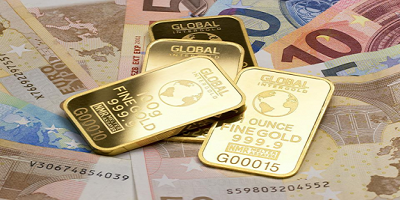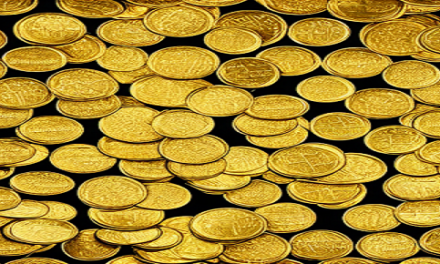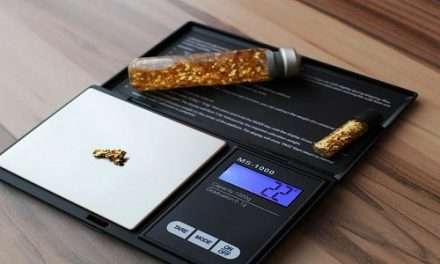If you’re like most people, you have an Individual Retirement Account (IRA) that you’ve been contributing to for years. But what happens when the time comes to retire, and you want to start taking distributions? Do you have to take the money out in cash, which could seriously impact your retirement accounts savings? Or is there a way to convert IRA to gold or silver without penalty? In this blog post, we will explore your options for converting your IRA into physical precious metals.
What Is IRA? Benefits Of Converting IRA into Gold or Silver
An individual retirement gold ira account, or IRA, is a tax-advantaged way to save for retirement. An IRA allows you to set aside money each year, up to a certain limit, and deduct the amount from your taxable income. The money in your IRA then grows tax-deferred until you withdraw it into your existing retirement account. When you do begin taking withdrawals, you will pay taxes on the money at your regular income tax rate.
There are two main types of IRAs: traditional and Roth IRA. With a traditional IRA, you get the tax deduction when you contribute, but with a Roth IRA, you pay taxes on the money when you contribute and then withdrawals are tax-free in retirement.
Converting your IRA to gold and silver can be a good way to protect your retirement savings from inflation and market volatility. Gold and silver have been used as currency for thousands of years and have always maintained their value.
When you convert your IRA to gold or silver, you have the metals delivered or stored securely to an approved depository. The IRS specifies that you can’t store precious metals (gold, silver, platinum, or palladium) from a self-directed IRA at your home or in your own safe-deposit box.
One of the best features about investing in precious metals is that it’s not difficult at all to get started. You can buy any amount from as little gold coins up through 100 ounces or more, which gives you plenty of options when beginning your collection – especially if they’re offered by different companies so that there will always be something available for purchase no matter what level interest rate might suit them most effectively! And with low barrier-to entry comes even greater benefits: since this market doesn’t require brokers nor do customers need account balances before trading begins on Wall Street stocks (or anywhere else),
Finally, gold coins, rounds and bars are tangible and highly liquid compared to other investments during periods of inflation.
For these reasons, converting an IRA to gold or silver can be a smart way to protect your retirement savings.
But if you’re considering converting your IRA to gold or silver, be sure to talk with a financial advisor first to see if it’s right for you.
How Do I Convert My IRA Without Penalty?
If you’re looking to convert your IRA to gold or silver, there are a few things you need to know in order to do so without incurring a penalty.
First and foremost, it’s important to understand that not all types of self-directed IRA are eligible for conversion. Generally speaking, only traditional IRAs and Roth IRAs can be rolled over into a gold or silver IRA.
Secondly, you’ll need to work with a gold IRA custodian via gold IRA company that specializes in precious metals IRA conversions. Not all new gold IRA companies offer this service, so it’s important to do your research and find one that does.
Finally, it requires a tiny bit of education which is what the custodian is there to provide for you. Any and all questions you have about your gold IRA rollover should be answered in detail by your custodian throughout the life of your investment. This is an invaluable service that all gold IRA custodian provide and offers tremendous value and peace of mind.
If you follow these steps, you can convert your IRA without incurring any penalties.
Questions Your Gold IRA Custodian Can Answer for You
When it comes to retirement planning, taxes are always a consideration. With a gold IRA rollover, you can minimize your tax liability and maximize the benefits of investing in precious metals. However, there are some tax questions that your custodian can answer for you. For example, they can let you know if early withdrawal penalties apply to your account. They can also advise you on how to take distributions from your account in order to avoid paying unnecessary taxes. By working with a qualified custodian, you can ensure that your gold IRA rollover provides the maximum benefit for your retirement planning.
Your custodian is the person who is responsible for keeping track of your gold and making sure it’s properly insured. They can also answer any questions you have about the rollover process. Second, you’ll need to decide how you want to distribute your gold. You can either take it all at once or spread it out over time. Lastly, you’ll need to consider early withdrawal penalties. If you’re under 59 1/2, you may be subject to a 10% penalty if you withdraw your gold early. However, if you’re careful planning your distributions, you can avoid this penalty.
Ultimately, your custodian will be able to answer any and all of your questions about rolling over your IRA and help you make the best decision for your situation.
Can I Still Use My IRA After the Conversion?
Many people are interested in converting their traditional IRA accounts to gold or silver, but there is some confusion about whether or not this is still possible after the conversion. The good news is that you can still make IRA contributions even after your account has been converted to precious metals IRA’s.
However, there are a few things you need to keep in mind.
First of all, the contribution limit for IRA accounts is $5,500 per year (or $6,500 if you’re over the age of 50). So, if you have a significant amount of money invested in gold or silver, you may need to adjust your contribution accordingly.
Secondly, any contributions you make to your other precious metals IRA must be made in the form of cash. You cannot contribute stocks, bonds, or other assets.
Finally, it’s important to remember that you will be responsible for paying taxes on any profits you earn from your gold or silver IRA.
With these things in mind, converting your traditional IRA to physical gold or silver can still be a great way to diversify your investments and hedge against inflation.





